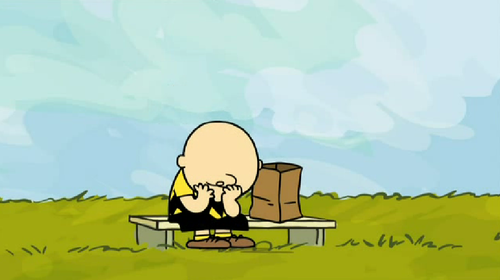How do you react when all your plans have to be changed at the last minute?
I made it to the airport in time for my 11:05 AM flight. I stood in line, went through security, got to the gate, and then looked up at the monitor to see "CANCELLED." I hadn't yet turned on my phone. It was a busy morning. So it was news to me. First and only big mistake of the day. I went over to the gate agent and waited my turn. "Hey, I've been cancelled and I have a talk in Charlotte at dinner."
"Oh. That's too bad." Clicking. Clicking. Clicking. Waiting. Endless waiting. More clicking. Bad Frownie Face. "Uh Oh. We can't get you there until really late tonight."
"What do you mean?"
"You're backed up, but all the seats were full on the next couple of flights out. You get in really late."
Nice face. "I can't do that. I have a talk at dinner. Can I drive to Raleigh? It's only 2 hours. I could fly to Charlotte from there."
Clicking. Clicking. Clicking. Waiting. Waiting. Waiting. Disappointed face.
"No, they're all full, too. Sorry."
"What should I do?"
Bright face. "We can get you to Atlanta, on Delta."
"You can?"
"Yes! I think so. But I'm not sure about getting you from Atlanta to Charlotte."
Ok. I thought to myself. If my roughly 200 Bank of America executives don't mind relocating to Atlanta in the next couple of hours, and finding a hotel there, then, we're fine.
In the old days, I would have been really worried. Now, when things change and there's a big challenge, I use what I have, stay calm within, and take action. I had an old car in the parking lot. It's my "leave outside at the airport car." Do I want to drive that to Charlotte? No. Maybe I have time to drive it back home and get a much better car. I think I can make it. Ok. Let's go.
In the old days, I would have worried and fretted and DREADED a drive in the rain to Charlotte, which, in those days, was four hours and fifteen minutes. Now, thanks to road improvements, you can do it in under four hours. Maybe three and a half. Sorry, Officer. That would not have made any difference, though. I used to dread any big last minute travel changes. I used to hate long drives. Now, though, I'm learning to live in the moment, adapt, and adjust as things change. Who knows? I might enjoy the drive.
I did. I did enjoy the drive, as long as it was. I didn't have to listen to the radio, or anything. I thought. I pondered. I contemplated. I went all Zen-ful. I noticed stuff. I was still. I wondered: There's a thing called "Walking Meditation" - Is there any such thing as "Driving Meditation"? Or would that end up with you contemplating bent fenders and broken bones?
The drive was fine. It was actually more than fine. It was nice. And I got to my destination, and even after getting lost in the city, having set the wrong address in my iPhone, I arrived in time to sign about 200 books, iron my shirt, press my suit, lie on the bed for a minute with my eyes closed, eat a snack, get dressed, and go speak. And it was great. Fun-Great.
But on the drive back, the very next morning, the pondering, contemplating, and Zen-ful mindset lasted only about half the trip. I listened to the radio for 15 minutes. Then I turned it off and started giving dramatic renditions, aloud, of Shakespeare soliloquies, and modern poems. And I had fun again.
So here's the lesson. When things go bad, use what you have, stay at peace within, as much as you can, and take action quickly. And be mindful. Live in the moment. And then, if you really need help, it can be good to have some stuff committed to memory. To be or not to be. That is the question. And yeah, the question goes on for hundreds more words - enough to keep you busy on the highway, or anywhere else, for that matter. And there's a lot of other good passages to memorize in the Bard, as well. It works for me. And I wanted to share.












































